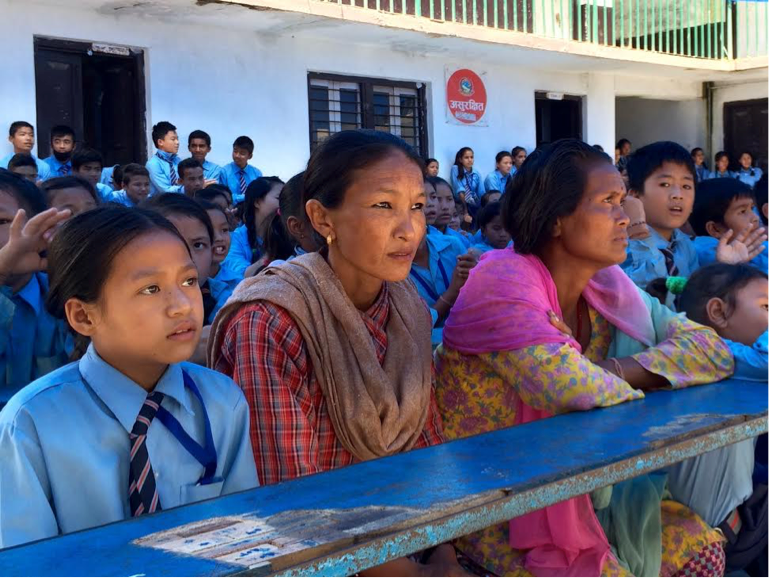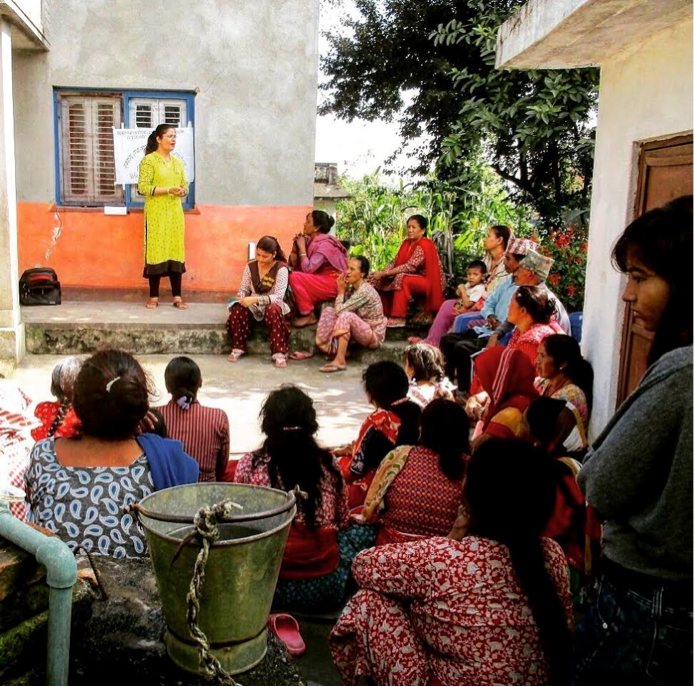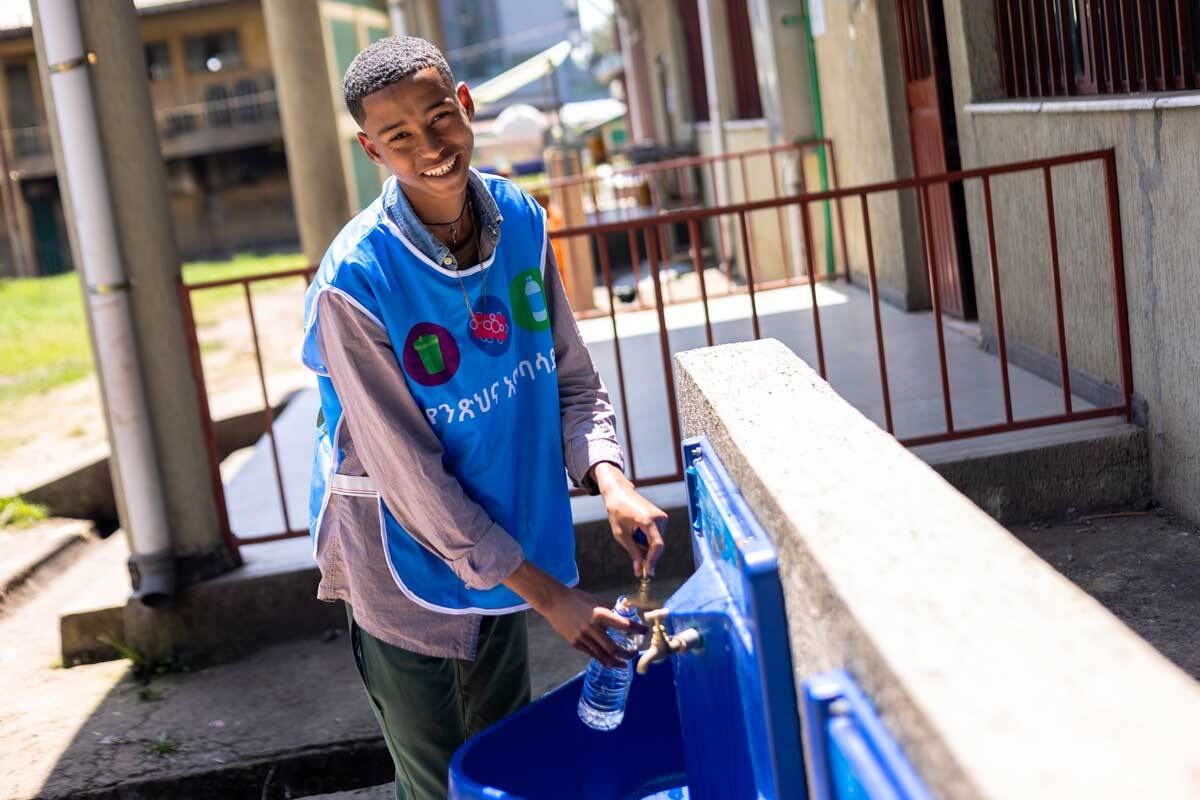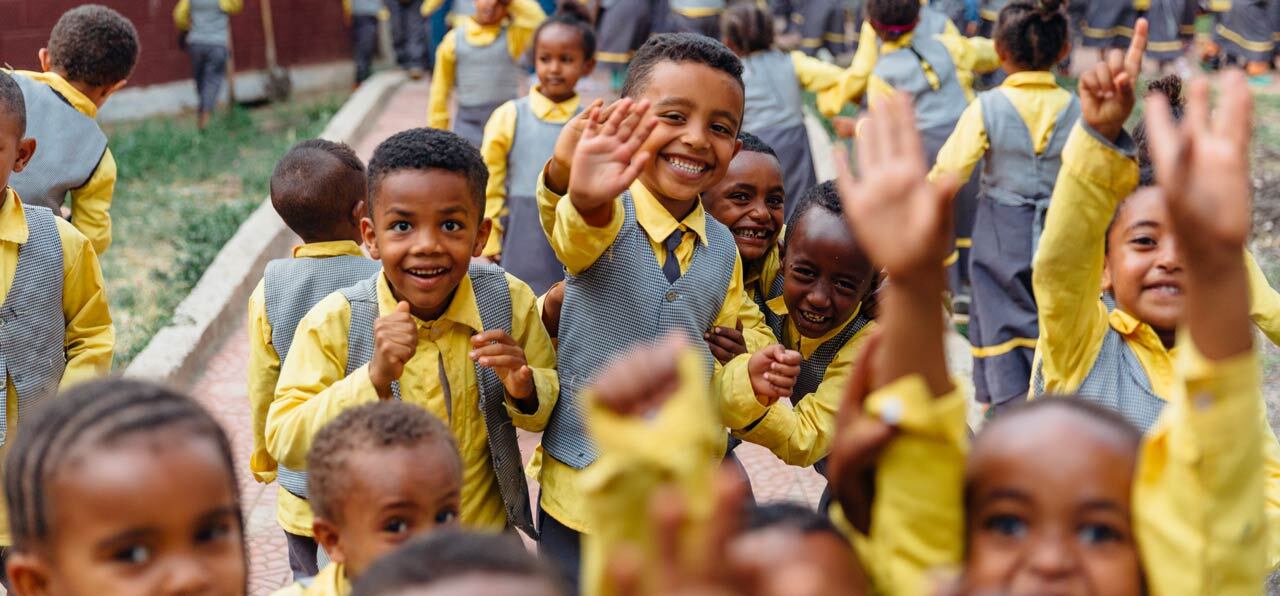Articles and information about Splash and the work we do.

September 24, 2016
Waking Up in a Cholera Outbreak

by Katelyn Galloway
Experts say the most productive people don’t look at their phones first thing in the morning. You shouldn’t do it, they say. But on July 27th, as I swiped open my email and wiped the sleep from my eyes, I was glad I did.
The first subject line in my inbox read: Cholera Outbreak in Lalitpur. My heart sank. People in Nepal have faced enough recently: catastrophic earthquakes, freezing winter temperatures, floods, political crises and gas and food shortages. And now this?
The email claimed 17 cases of cholera had been reported. As the Health & Hygiene Manager of Splash Nepal, I immediately forwarded the alert to my colleagues.
When I arrived at the Splash Nepal office later that morning, the rest of the team was already in emergency response mode. They, too, had ignored the experts and checked their emails that morning.
Splash contacted the Nepal Public Health Office, the District Education Office (DEO), and the other government and NGO allies we had joined forces with in the aftermath of the earthquake. Together, we identified the four zones of Lalitpur most affected by the initial outbreak.
As an initial step, the DEO commissioned the Environment and Public Health Organization (ENPHO) to survey the water quality of all Lalitpur schools. Thankfully, all schools with a Splash filtration system tested negative for coliform.
But the number of reported cholera cases in the area was rising, and our team worried about it spreading to the kids at our partner schools — the ones we promised to help protect from water-borne disease. The Splash team knew that students in Kathmandu needed more than our standard clean water intervention. They needed intensive hygiene education and long-term reinforcement from those they look up to: adults.

We had our objectives. Our immediate goals were: to ensure the water flowing from Splash’s filters remained free of microbial contamination; and to make parents and community members aware of cholera and teach them how to prevent it from spreading. Since adults serve as both role models and behavioral guides for children, we began including parents, teachers, school administrators, and community members in our hygiene education activities.
We started with the communities. Working with key players in local development and government, we identified women’s groups and communities that were in the cholera outbreak areas. Then the Splash Nepal team gave awareness presentations and lessons on how to ensure safe drinking water and keep up proper personal and environmental hygienic practices at home.

Next, we targeted the people responsible for ensuring children’s health throughout the course of the day: the school administrators. Whether we had worked with a school previously or not, we wanted to ensure that all school principals had the knowledge and resources to ensure their students had access to clean, safe drinking water. We invited principals from high-risk zones to several 2-hour training sessions on preventing cholera in schools and provided them steps for keeping kids safe at school. In collaboration with UNICEF, Splash distributed educational materials so that principals could share these health lessons with their school staff.
Splash Nepal also organized Hygiene Event Days at schools with a focus on cholera awareness and prevention and invited school parents and the local community members. As with Splash Nepal’s annual Hygiene Event Days, the purpose is to celebrate the school’s access to clean, safe drinking water, and to spread messages about the importance of proper hygiene. With support from the Rotary Club, we were able to obtain donations of soap and Piyush (chlorine drops) for home use to distribute to adult attendees.

All the while, Splash continued to ensure that kids at Kathmandu schools had the cleanest water possible. Our team visited every single one of our partner schools across the Kathmandu Valley to re-test the water quality and proactively sterilize each filtration system. On our visits, we reminded teachers and staff to resupply soap, encourage handwashing, and ensure clean water is available to all students all the time.
Strong collaboration with government and other NGOs is key to reaching the maximum number of people. So far, our Cholera Outbreak Response campaign has reached over 10,000 children and adults directly and thousands more indirectly through the distribution of information, soap, and chlorine packets.
Despite all this concerted effort, the outbreak isn’t over yet. Every day, Splash Nepal continues to support extra hygiene programs at schools across the Kathmandu Valley. And every morning, I wake up and check my email for updates.


